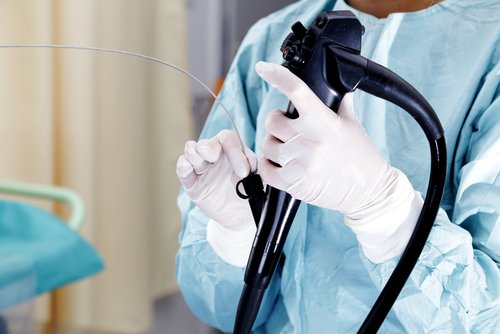Failing to get a diagnostic colonoscopy within nine months of a feces test that indicates the possibility of colorectal cancer increases the risk of a person developing the cancer, a Kaiser Permanente study shows.
A gap of nine months or more between the diagnostic procedures also increases the risk of a person developing a higher-stage colon cancer, the researchers said.
The good news is that the risk between a FIT and colonoscopy at nine months is the same as at one month, the study showed. The risk jumps after that, however.
The research, “Association Between Time to Colonoscopy After a Positive Fecal Test Result and Risk of Colorectal Cancer and Cancer Stage at Diagnosis,” was published in JAMA, the Journal of the American Medical Association.
“With this study we have strong evidence that a colonoscopy should be performed within several months of a positive fecal screening test,” lead researcher Douglas A. Corley said in a news release. He is a Kaiser Permanente gastroenterologist and research scientist in Northern California.
A fecal immunochemical test (FIT), which detects blood in stool, is commonly used to screen for colorectal cancer. A test showing blood requires a follow-up colonoscopy. But follow-up intervals vary, and the longer they are, the more chance of a cancer progressing.
Researchers wondered if the time between a positive FIT test and a colonoscopy was connected with the risk of a person developing a colorectal cancer, and the risk of the disease being diagnosed at an advanced stage.
The study included 70,124 patients from 50 to 70 years old who had a positive FIT and received a follow-up colonoscopy. Patients were Kaiser Permanente members in Northern and Southern California.
About 40 percent of patients had a follow-up colonoscopy within a month, 64 percent within two months, and 74 percent within three months.
The risk of a person developing colorectal cancer was the same when a colonoscopy was performed eight to 30 days after a FIT test as it was at two months, three months, four to six months, or seven to nine months.
But the risk jumped when the colonoscopy was 10 months to a year after a FIT. In fact, the risk of a person having any colorectal cancer increased by almost 50 percent, and the risk of an advanced malignancy nearly doubled.
If patients waited more than 12 months, the risk of any cancer more than the doubled, and the risk of an advanced cancer tripled.
Three percent or 2,191 of all the patients with a positive FIT ended up with colorectal cancer. Less than 1 percent or 601 patients ended up with advanced-stage cancer.
The study should help ease the concern of those with a positive FIT, researchers said.
“It is a lot of effort for patients to arrange a colonoscopy, given the need for time off work and scheduling someone to accompany them home,” said Dr. Theodore R. Levin, the study’s senior author. “Our study shows that you should get your colonoscopy done, and you should do it as soon as is feasible, but any time within a few months — which is our goal at Kaiser Permanente — is reasonably safe based on these data,” added Levin, who is head of colorectal cancer screening for Kaiser Permanente’s Northern California Region.
Colorectal cancer is the second deadliest cancer that affects both men and women in the United States, the U.S. Centers for Disease Control and Prevention said.
The U.S. Preventive Services Task Force recommends that people between 50 and 75 years old should be screened for colorectal cancer yearly with a fecal test, and have either a sigmoidoscopy every five years or a colonoscopy every 10 years.
By combining an annual fecal screening with sigmoidoscopy or colonoscopy, Kaiser Permanente said it is meeting or exceeding the American Cancer Society’s screening target rate of 80 percent of patients.
“Until this study, very little evidence was available regarding when colorectal cancer begins to progress,” said Dr. Joanne Schottinger, chair of the Regional Cancer Committee for the Southern California Permanente Medical Group. “Our research confirms that it is very important for patients to have a colonoscopy within a few months of receiving a positive FIT screening.”


